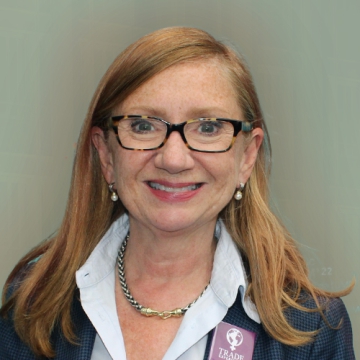Omicron stopped trade ministers from meeting. It need not stop WTO members from delivering
If things had proceeded as planned, 3 December would have marked the conclusion of the World Trade Organization's (WTO) 12th Ministerial Conference (MC12). But the Omicron variant had other plans and MC12 did not happen. The deterioration of the epidemiological situation and cascading travel restrictions led to the postponement of the ministerial gathering. While disappointing, the decision had the support of the full membership. Speculation has ensued as to what could have happened, how does this reflect on the relevance of the organization and whether governments will regroup to deliver. Initial developments provide room for hope — not for complacency, though. The postponement of MC12 does not remove the need for hard work and pragmatic compromise.
Despite the setback, the week started off on a good foot, with delegations in Geneva promptly reengaging. Director-General Dr. Ngozi Okonjo-Iweala captured the mood by half-jokingly saying the suspension had interrupted momentum “for all of 48 hours”. To begin with, 67 WTO members representing 90 percent of global services trade announced the conclusion of the Joint Statement Initiative on Services Domestic Regulation, a deal focused on increasing transparency and facilitating the ability of businesses and suppliers to provide a service. With the adoption of this plurilateral arrangement, which could lower trade costs globally by $150 billion a year, the WTO is back in the business of rule-making.
On a different note, Lao People's Democratic Republic officially joined the WTO's Information Technology Agreements (ITA), the first least-developed country to do so. By slashing tariffs on information technology, Lao points the way on how to facilitate access to cheaper IT goods for consumers, reduce the cost of building IT infrastructure and improve conditions for attracting investment. Separately, with the submission of its revised offer to accede to the WTO Government Procurement Agreement (GPA), Brazil took a significant step towards opening its $250 billion government contracts market and increasing transparency and good governance, while providing Brazilian companies with access to other GPA parties' markets.
Governments also rapidly came together to debate how to resume negotiations and most importantly, achieve the expected outcomes. Members want to keep the momentum. The renewed threat posed by the Omicron variant was a stark reminder of the need to promptly converge on a meaningful, effective and pragmatic WTO response to help fight the pandemic, including on issues related to intellectual property rights. Take-it or leave-it options were not going to work at the ministerial gathering and they certainly will not work now. But the landing zone is in sight for members to grasp and the timing to do so could not be more pressing.
A lot of work was put into preparing the text on curbing harmful fisheries subsidies. Ministers had a tough job ahead of them, however, with important disagreements outstanding on issues like non-specific fuel subsidies, special and different treatment for developing countries, and disclaimer language related to territorial claims. Here, as in agriculture — where the level of ambition was modest — there is the risk of backsliding by some members maybe not that keen on reaching a deal in the first place. Preserving progress is key to bring the negotiation to fruition.
The path forward on other plurilateral negotiations is more straightforward. Negotiations towards an agreement on investment facilitation, with over 110 participants representing some two thirds of the WTO membership, are on track to conclude within a year. Participants in an e-commerce initiative will work to continue to enlarge the membership and build on current substantial progress to secure convergence on most issues by end-2022. On a related matter, the e-commerce moratorium fostering a duty-free environment on electronic transmissions will remain in place for now.
Another bright spot is trade and environment, where many governments are getting ready to deepen their engagement in areas such as trade and climate, plastics trade and fossil fuel subsidies. The adoption of declarations is the initial step to begin focused talks that could potentially result in plurilateral negotiations, opening a new stage of collaboration among countries, including among the larger players, to leverage trade in support of environmental objectives.
In preparation for MC12, a catch-all text, known as the Outcome Document, incorporated a set of decisions for ministers' consideration. Of these none is more important for the future of multilateral trade cooperation than launching a process to address institutional and other improvements to the functioning of the WTO, including restoring a fully effective dispute settlement mechanism. While this is an area where progress requires political energy, trade ministers need not sit all in one place at the same time to take critical decisions. Innovative formats can and should be explored.
In a letter to government authorities, the MC12 chair and vicechairs asked them to empower their Geneva representatives to resolve outstanding differences for ministers to reconvene and adopt agreements during the first week of March 2022, if conditions allow. While there is still some debate on the specific date of the ministerial gathering, there is no time to waste. As the American writer and newspaper publisher Harry Golden once said “the only thing that overcomes hard luck is hard work.” So hard work it is from now onwards.
* Anabel González was Deputy Director-General from June 2021 to August 2023
